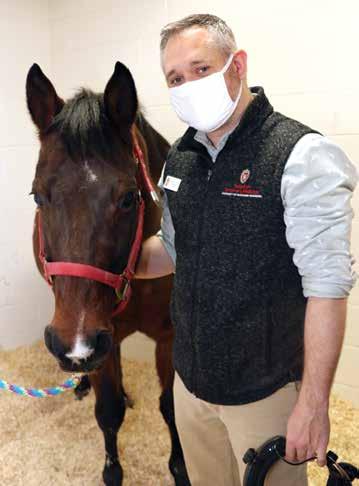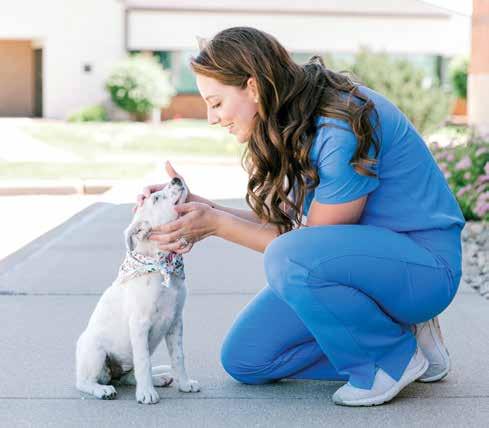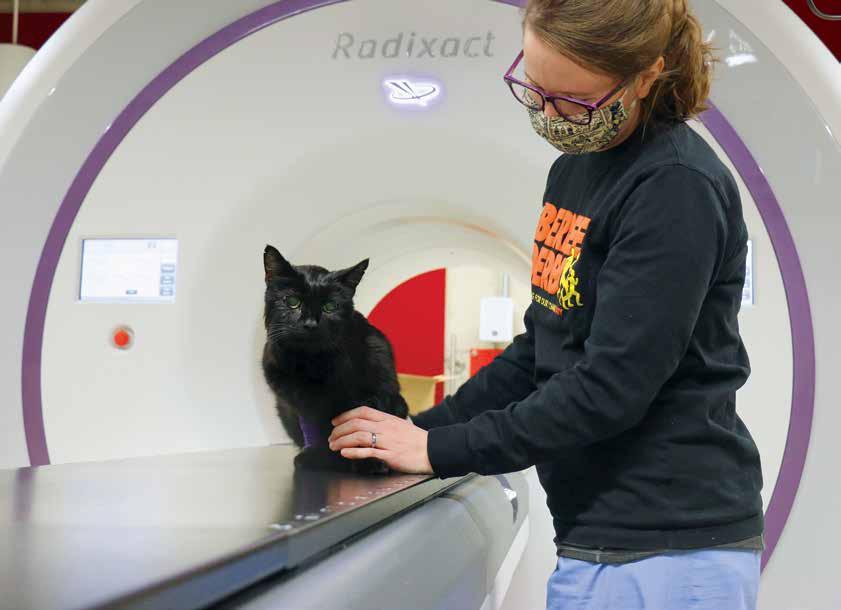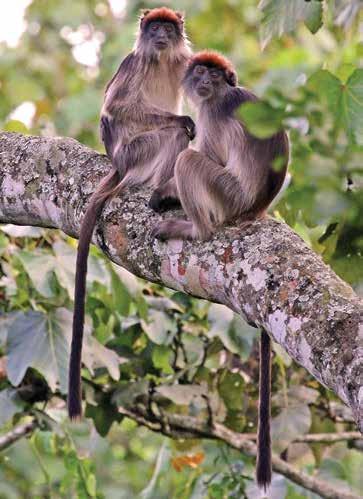
2 minute read
Faculty Focus
Meet Seth Eaton, Clinical Assistant Professor of Comparative Ophthalmology
MEGHAN LEPISTO
Advertisement
How did you get into your field of research? My path was ignited by my involvement in preclinical drug development and comparative vision science as a member of the research consortium Ocular Services on Demand. Thus, some of my research focuses on ocular pharmacology and toxicology in small animal patients, particularly with respect to glaucoma. I am also investigating comparative ocular oncology, specifically the diagnosis and treatment of several ocular cancers and disorders in horses, dogs, and cats.
What attracted you to UW–Madison? The School of Veterinary Medicine (SVM) has an outstanding international reputation for clinical service to the community, state, and beyond, and for being at the forefront of many fields within our profession. This is even more impressive when one realizes that the school is one of the youngest in the United States. I have also always been impressed with the numerous collaborations between the SVM, School of Medicine and Public Health, and other health sciences schools at the university. These collaborations have produced some incredible research and are models for the power of interprofessional partnerships. It is clear that the SVM is serving Wisconsin and beyond at a high level; I hope that my work will contribute to that influence and benefit animal health and public health for our state, nation, and world.
What’s one thing you hope students who take a class
with you will come away with? The crux of learning more and advancing the field comes from asking questions. Many of us are conditioned to withhold the questions we have in our heads and maybe even dismiss them. I want students to feel empowered to ask questions and question why we do things a certain way. In turn, my promise as a clinician and educator is to be honest in admitting when I don’t have the answer. When there is an unanswered question, there is inherently a great deal of opportunity to learn and advance our profession.
Is there a way your field of study can help the world
endure and recover from the COVID-19 pandemic? As a veterinarian, we feel heavily tied into public health; specifically, being as knowledgeable as possible regarding any zoonotic factors associated with the pandemic. More immediately, we also feel a strong responsibility to be available to our clients to provide the most attentive and compassionate care for our animal patients. Veterinarians are so well aware of the importance of the human-animal bond. Now, in this time of distress and hardship, the health and integrity of that bond stand to become an even more critical facet of human mental health and the comfort of “normalcy” in our newly disrupted lives. We certainly take that responsibility very seriously.
What’s something interesting about your area of expertise
that we might not be aware of? An unfortunately common clinical scenario in veterinary medicine is the need to surgically remove an animal’s eye to alleviate the discomfort associated with painful and blinding ocular disease. In horses, particularly those that race or perform in other athletic events, many would assume this to be a major handicap and career-ending scenario. However, in the 145-year history of the Kentucky Derby, at least four one-eyed horses have run the race. The mysterious ways animals compensate for vision impairment are remarkable and continue to amaze us in the veterinary medical field.
Fun fact:
Eaton is a classically trained double bassist and member of the UW–Madison Health Sciences Orchestra.






